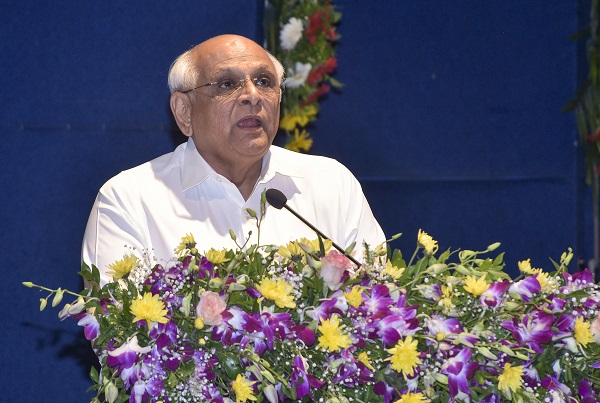Financials Sector Update : Regulatory measures on credit cards to enable long-term sustainable growth - Motilal Oswal Financial Services Ltd

RuPay to get a boost as dependence on foreign card networks reduce
Over the past few months, the RBI has announced several regulatory measures with regard to the functioning of the credit card industry. The measures encompass various changes, including increase in risk-weight, levying of fees and other charges, ban on select banks regarding the origination of co-branded credit cards, and the prohibition of exclusive agreements with co-branded partners. These initiatives are designed to enhance consumer choice within the industry. All these measures are intended to improve the governance standards and transparency in the industry, while upholding high customer privacy. However, this would also require card players, networks, and co-branded partners to align themselves to the rapidly evolving regulatory landscape. We connected with various industry experts to understand these developments in details. Following are the insights from the same:
High regulatory oversight to ensure good quality sustainable growth
The RBI has taken several measures over the past few quarters, centered on ensuring high-quality sustainable growth, while adhering to best-in-class governance practices. These recent actions span not just on credit cards (increasing the riskweight of unsecured loans, disallowing exclusive co-branded partners, and restricting commercial payments on credit cards). Additionally, the RBI has issued directives aimed at improving credit deposit ratios for banks, imposing restrictions on entities such as Paytm Payment Bank, and implementing measures concerning specific NBFCs (measures on IIFL Finance, JM Finance, AIF provisioning, etc). Apparently, after putting in tremendous regulatory efforts over the past six to seven years, the banking system has reached a point where concerns regarding asset quality, capitalization levels, and profitability have eased considerably. The regulator is now taking proactive steps to ensure sustainable performance going forward.
Credit card has grown at 25% cagr over past 3 yrs vs 21% for overall retail
Systemic credit card loans have registered a CAGR of 25% over the past three years vs 21% CAGR in overall retail. The outstanding credit cards have also recorded 18% CAGR over the past three years. This has been enabled by the rapidly expanding digital payments infrastructure, increasing customer awareness, steady growth in card volumes, and an attractive product proposition. However, the recent rise in delinquency trends in the unsecured segment and aggressive growth in card distribution, mainly led by co-branded partners, has prompted the RBI to announce multiple steps to improve overall transparency and governance standards.
RBI disapproves exclusive agreements with card networks
The RBI has recently banned the card players from entering into exclusive agreements with card networks to promote overall transparency and protect the customer interest. The RBI thus clearly wants banks to allow customers to choose their preferred card networks, which was hitherto decided solely by banks. This will elp address the duopoly of network giants like Visa and Mastercard and alongside promote India's own payment network NPCI-RuPay.
Co-branded credit card partnerships may need to be re-designed
Until now, card-network companies have primarily engaged directly with banks (B2B). However, with users now having more options to choose from, the card network companies will need to innovate to address this shift. The card networks may thus need to develop exclusive rewards and implement innovative marketing strategies to attract customers. This means that existing arrangements between card networks and the banks will likely need to be re-evaluated. Co-branded cards, which represent 15% of the total cards and witnessing rapid growth, have traditionally served as a conduit for attracting new-to-bank (NTB) customers. This is primarily due to their cost-effective fee structures and attractive reward programs. The lenders will thus need to re-design their co-branded partnerships at the time of renewal and this may alter the dynamics of how the industry has been typically functioning.
Rupay to get a boost; card players to redesign their product offering
India's credit card network has historically been dominated by Visa and Mastercard, while there are two other foreign card networks viz American express and Diners Club. The recent circular by the RBI prohibiting the exclusivity agreements between the card issuer and the network will provide more options to customers to choose between card networks, and will thus, help Rupay gain traction in the credit card segment after a rapid scale-up in debit card space. The measures will come into effect from 1-Oct-24 and card players will need to strategize their product offering to ensure card availability across all networks.
Dependency on foreign card networks to reduce
The dependency on foreign card networks appears uncomfortably high, especially for a country which is among the top-5 GDPs in the world and has witnessed such a rapid rise in the use of digital payments. Even in the banking space, the RBI has been very vigilant and has ensured that domestic banks account for ~85-95% of total systemic loans, while the role of foreign banks remains fairly limited. Considering the recent instance where Visa, Mastercard, and American Express all suspended their operations in Russia after its Ukraine invasion, it is critical to have a home grown payment system, which can ensure payment continuity across all times. Consequently, these recent measures by the RBI will help reduce dependency on foreign cards and foster the growth in domestic Rupay network over the coming years.
Rupay has its own strengths and challenges; Credit on UPI a major edge
Rupay has a distinct advantage of being the sole network to be allowed to offer credit on UPI rails. However, Rupay has faced challenges in the past, including lower rewards, limited international acceptance, and brand perception issues among users. We anticipate that the RBI's new regulations could bolster the market share of Rupay cards, especially with the growing acceptance among merchants, the competitive advantage of being the sole network on UPI, and the improving brand perception among users.
Customer privacy and robust back-end infrastructure critical to support growth
The RBI has recently banned Federal Bank and South Indian Bank to originate cobranded credit cards. However, they are permitted to continue serving existing customers and can issue non-co-branded credit cards. Our interactions suggest that One card which serves as a co-branded partner with both Federal Bank and South Indian Bank was the technology service provider (TSP) also and thus has the access to customer data as well. The RBI requires this data to be encrypted before transmission to the OneCard stack, emphasizing that card-related data should not be accessible to the sourcing partners for their own analytics. This highlights the regulatorís emphasis on ensuring the presence of robust systems, and processes to support industry growth, all the while safeguarding customer privacy.
Regulatory focus to remain high; remain watchful of sector developments
The increased risk weights on unsecured loans (credit cards and personal loans) along with other measures on co-branded cards, fees, etc., underscores high regulatory overview on the industry to ensure steady long term sustainable growth. Additionally, the growing dependence on Fintechs has made regulators more vigilant, particularly concerning customer protection. The industry is already experiencing a rise in delinquencies and while the trend across players are divergent, there remains a need to ensure adherence to high-quality processes and compliance systems to prevent any future shocks. Moreover, the regulator is also watchful of rising customer leverage, which could lead to higher delinquency rates. We remain watchful of sector developments with a particular focus on card companies and banks. Within our coverage, SBI Cards and RBL Bank are stocks worth monitoring. In the co-branded category, major banks such as ICICI (in partnership with Amazon) and Axis (in partnership with Flipkart) are key stocks to watch out for amid recent developments.



















.jpeg)




